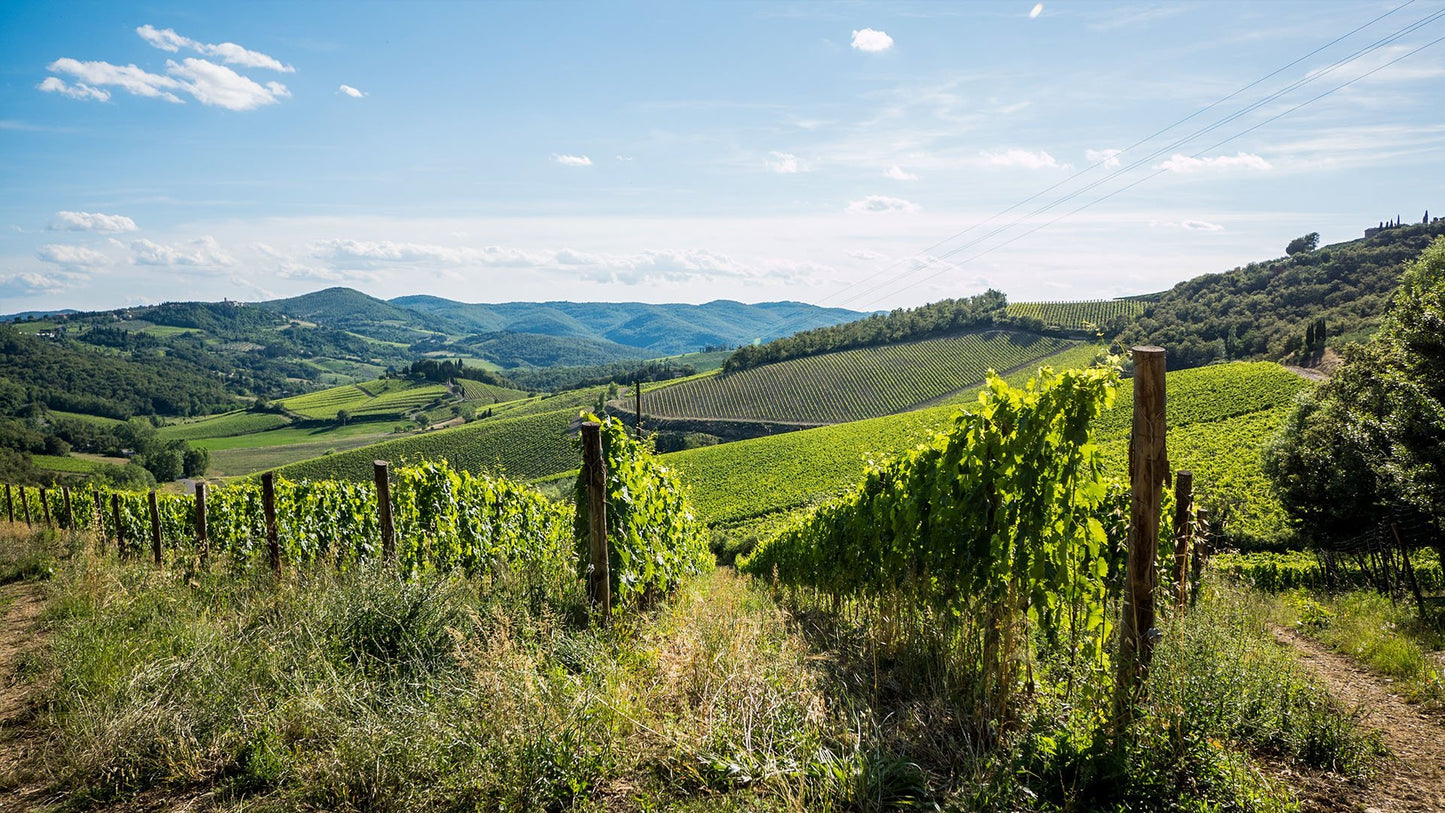
Poggerino is one of the properties of a large estate, which used to belong to Prince Ginori Conti, a descendant of one of Florence's oldest families.

Floriana Ginori Conti inherited the winery from her father in the 1970s and began to produce a Chianti Classico with the "Poggerino" label in 1980. In 1999, she handed over the property to her two children, Piero and Benedetta Lanza, who have been managing it since 1988. Piero Lanza is a passionate agronomist and one of Chianti's greatest young ambassadors. He's a qualified oenologist and brilliant winemaker, whose wines have improved immeasurably over the past few vintages.

Poggerino’s wines are produced exclusively from its own grapes, and every step of wine production and marketing is carried out by the owners themselves.
Today, Poggerino has approximately 12 hectares of vines in production, planted mostly with Sangiovese. About 1 hectare is planted with Merlot.
Poggerino believes in an almost fanatical attention to vineyard work. It is in the vineyard that they strive to produce healthy grapes that have attained the highest degree of concentration and ripeness possible, for this is essential to the production of wines of style and character that can fully reflect the individuality of Poggerino’s terroir.
The wines produced from these grapes combine a richness and concentration of fruit, acidity and tannin, indispensable to the wine’s longevity, while the soft, ripe nature of the tannins allows the wine to be enjoyed early in its life.
Poggerino’s vineyards are located 400 to 500 meters above sea level, and face south-southwest. The soil is very rocky, due to the breakup of local “galestro” rock, which provides optimal drainage. These factors are all essential in the quest to produce great Sangiovese.
Clonal selection in the newer plantings have resulted in Sangiovese vines that produce small grapes and bunches, thus maximizing concentration and sweetness of fruit and skin to juice ratios. This provides deeper colour and more intense, ripe tannins, essential in the structure of the wines.
Organic Farming

Poggerino believes deeply in respecting the land they cultivate. Thus they have made the choice to farm organically, even if it not always the easiest way. Respecting the earth means working to stimulate and increase its biodiversity, biological activity and cycles. The soil is a complex environment and they know that viticulture in time, harvest after harvest, tends to deplete the soil. Therefore they have taken on the responsibility to increase the biological vitality of the soil, its structure and mineral components to contribute to a natural balance in the vineyard, thereby producing grapes of an excellent quality and expressing ‘terroir’.
They do not use pesticides and herbicides. These damage the vitality of the soil and stop all natural processes. Treatment against parasites is instead conducted organically (bacillus thuringensis) and grass is removed mechanically.
They do not use synthetic fungicides and rely only on mined sulphur and copper in small amounts.
They do not use chemical fertilizers. In its place, they use composted manure coming from an organic farm. In the autumn, all of their vineyards, olive groves and vegetable gardens are sown with a mixture of legumes (green manure). This replenishes the soil and improves its structure. This ‘green manure’ also creates a hospitable environment for insects and helps to control weeds.
When a vineyard is removed to re-plant it, the land is left fallow for some years (from 7 to 9) and sown annually with ‘green manure’. This gives the land a pause and a chance to replenish itself.





















































